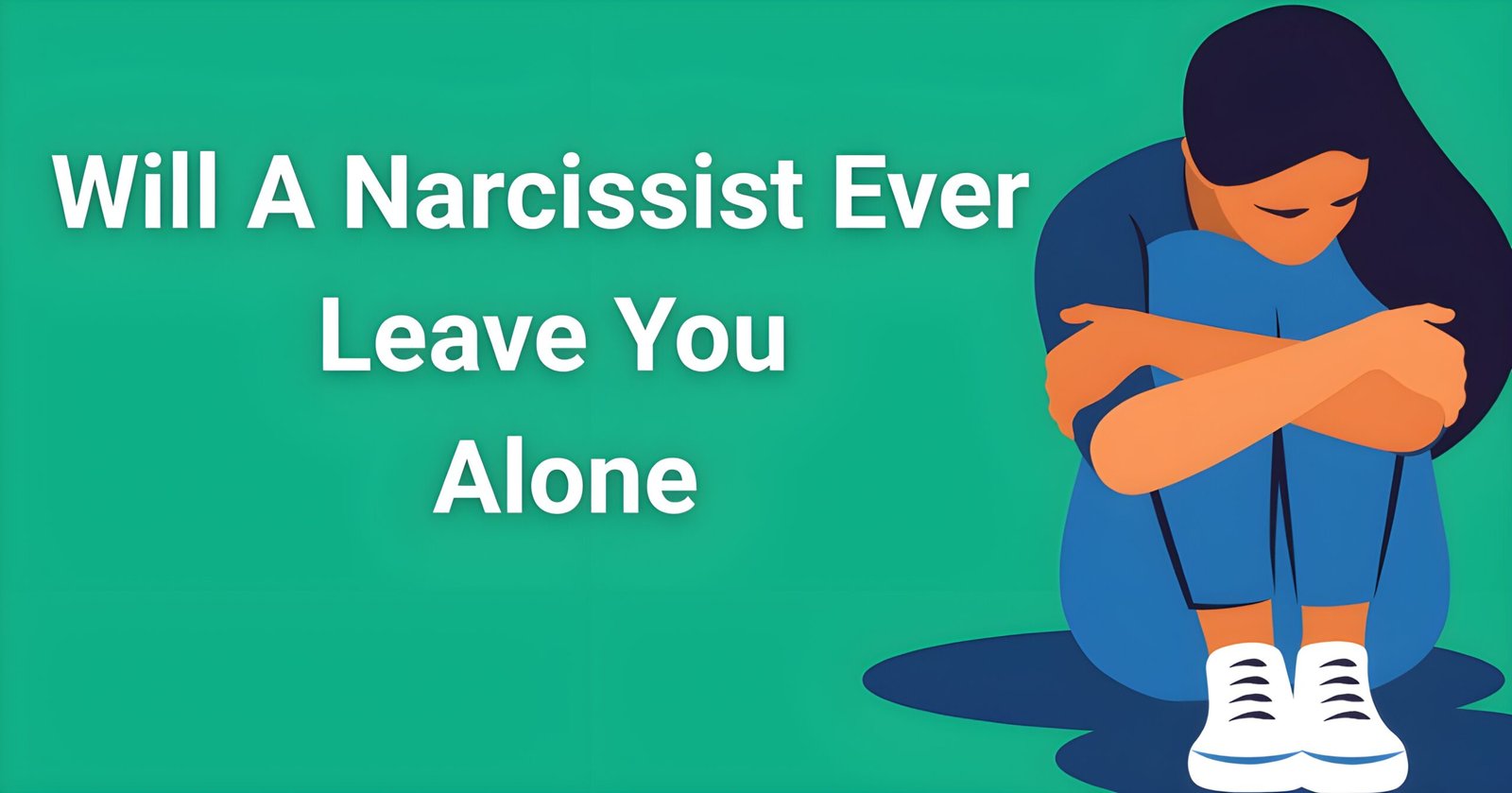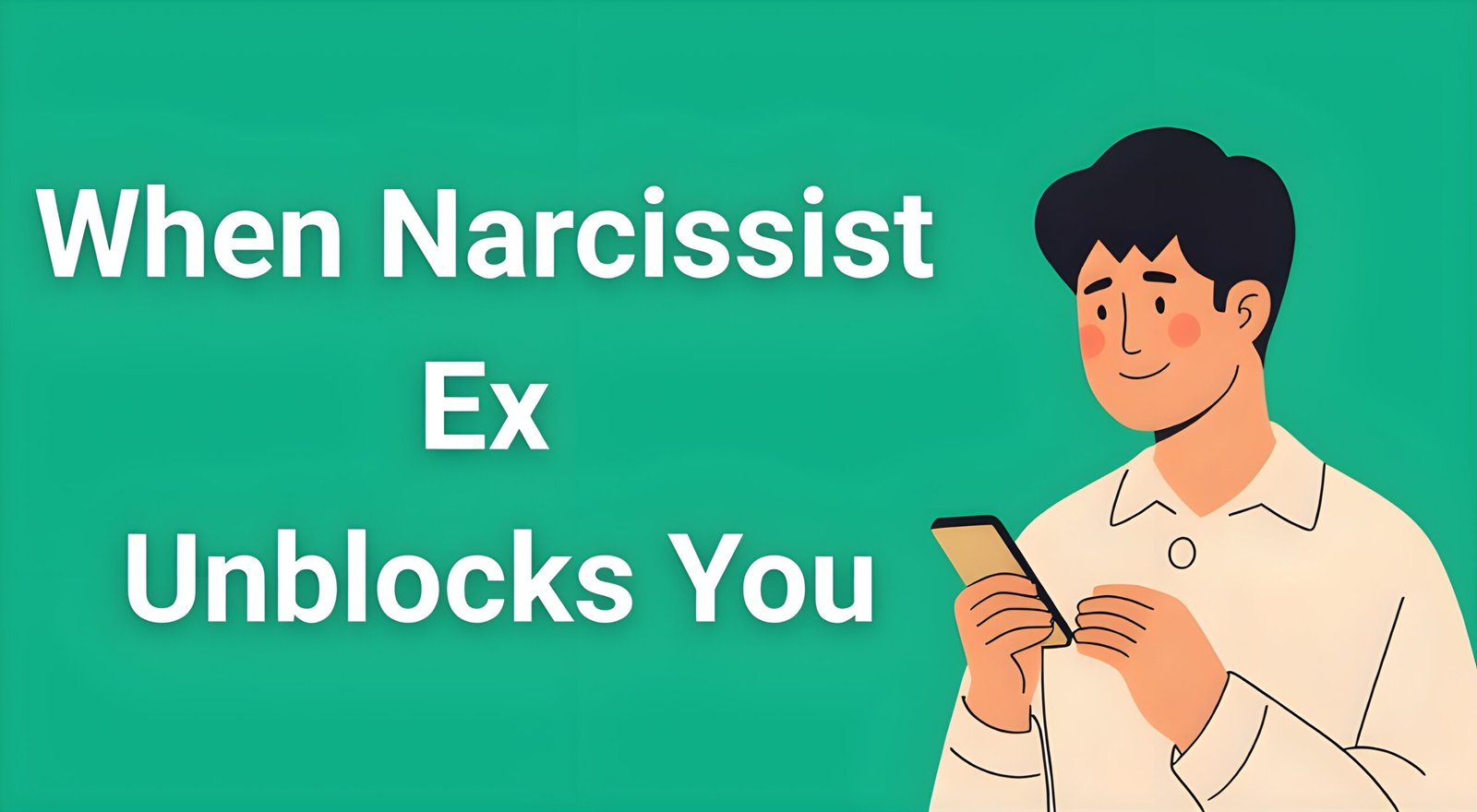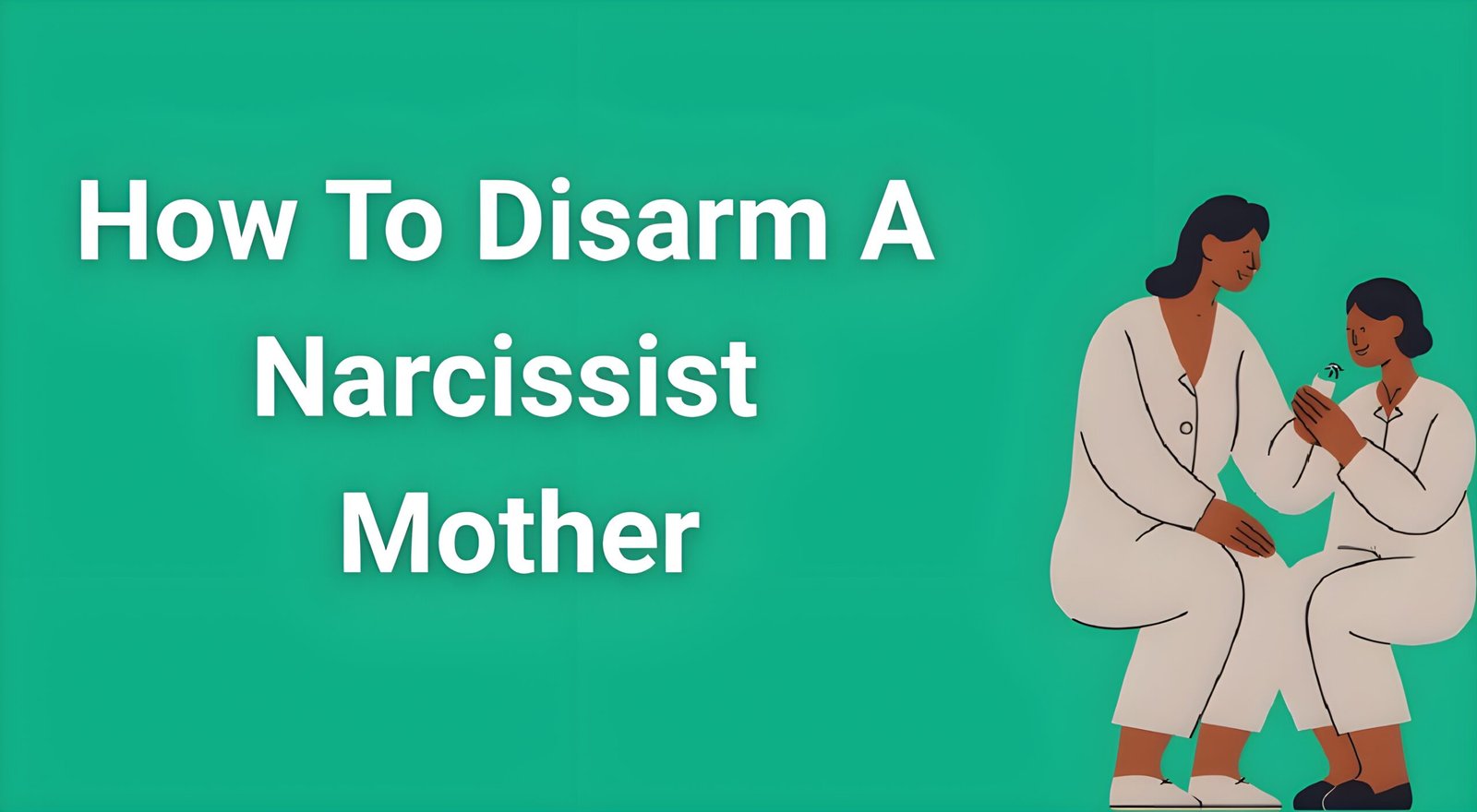Will a narcissist ever leave you alone? The brutal truth is that this question haunts thousands of survivors who live in constant fear that their narcissistic ex-partner will never respect their boundaries or accept the end of the relationship. After working with countless survivors through NarcissismExposed.com as a Certified Narcissistic Abuse Specialist, I can tell you that your fear is both understandable and, in many cases, justified – but there is hope for freedom.
- Understanding Narcissistic Persistence: Why They Won’t Let Go
- Will a Narcissist Ever Leave You Alone? The Brutal Truth About Timelines
- The Psychology Behind Will a Narcissist Ever Leave You Alone
- Strategies to Make Will a Narcissist Ever Leave You Alone a Reality
- Will a Narcissist Ever Leave You Alone: Warning Signs of Dangerous Persistence
- The Truth About Will a Narcissist Ever Leave You Alone: Success Stories and Hope
- Life After Narcissistic Harassment: Will a Narcissist Ever Leave You Alone and What Comes Next
- Key Takeaways: Will a Narcissist Ever Leave You Alone?
- Frequently Asked Questions
The brutal reality is that narcissists often persist longer than healthy individuals would in trying to maintain contact, but the vast majority do eventually move on when they find new sources of supply or when the effort becomes too costly for them. Understanding the psychology behind their persistence and implementing strategic responses can significantly reduce the time and intensity of their contact attempts.
What makes this question so emotionally charged is that narcissists don’t follow normal breakup rules. They don’t respect “no,” they don’t understand closure, and they often view your attempts to establish boundaries as challenges to overcome rather than preferences to respect. This creates a terrifying sense that you might never be free from their manipulation and control.
The truth about narcissistic persistence patterns will either validate your worst fears or provide the roadmap you need to finally achieve the peace and safety you deserve. Understanding why some narcissists persist while others move on quickly is crucial for developing effective strategies to encourage them to leave you alone.
Understanding Narcissistic Persistence: Why They Won’t Let Go
Before exploring whether narcissists will ever leave you alone, it’s essential to understand the psychological mechanisms that drive their persistent contact attempts. This persistence isn’t about love or genuine desire for reconciliation – it’s about narcissistic supply, control, and ego protection.
Narcissists persist in contacting their former partners for several interconnected psychological reasons that have nothing to do with healthy attachment or love.
The Narcissistic Supply Addiction
The primary reason narcissists struggle to leave you alone is their addiction to the narcissistic supply you provided during the relationship. You became their primary source of attention, validation, and emotional regulation, creating a psychological dependency that’s difficult for them to replace immediately.
Narcissistic supply includes:
- Attention and focus on their needs and problems
- Validation of their importance and specialness
- Emotional reactions that confirm their power over you
- Caretaking behaviors that support their lifestyle and ego
- Admiration and praise that maintains their grandiose self-image
When this supply is suddenly cut off, narcissists experience what psychologists call “narcissistic injury” – a profound wound to their sense of self that creates desperate attempts to restore the previous dynamic. This creates the persistent contact attempts that make survivors wonder if they’ll ever be left alone.
The Control and Ownership Mentality
Another crucial factor in narcissistic persistence is their fundamental belief that they own or control their former partners. Narcissists don’t view relationships as partnerships between equals – they see them as arrangements where one person (them) has authority over another person (you).
This ownership mentality manifests as:
- Belief that they have the right to contact you regardless of your wishes
- Anger and indignation when you set boundaries or refuse contact
- Attempts to punish you for “disobedience” through harassment or manipulation
- Use of children, mutual friends, or family as ways to maintain control
- Stalking behaviors that reflect their belief in their right to monitor your life
Research published in the Journal of Interpersonal Violence shows that individuals with narcissistic traits are significantly more likely to engage in persistent unwanted contact and stalking behaviors after relationship endings, primarily due to their difficulty accepting loss of control over their former partners.
Will a Narcissist Ever Leave You Alone? The Brutal Truth About Timelines
The question of whether narcissists will ever leave you alone requires understanding that their persistence patterns vary significantly based on several factors. While most narcissists do eventually reduce their contact attempts, the timeline and intensity can differ dramatically between individuals.
Factors That Influence Persistence Duration
The length of time a narcissist will continue attempting contact depends on multiple variables that determine how valuable you are as a supply source and how easily they can find replacement sources.
Primary factors include:
Type of Narcissist: Grandiose narcissists may move on more quickly when they find new sources of admiration, while vulnerable narcissists may persist longer due to their victim mentality and difficulty finding new supply sources.
Availability of Alternative Supply: Narcissists with strong social networks, attractive physical appearance, or financial resources often find new partners more quickly, reducing their persistence with former partners.
Length and Intensity of Previous Relationship: Longer relationships where you provided extensive narcissistic supply typically result in longer persistence periods, as you represent a significant loss that’s difficult to replace.
Your Response Pattern: Narcissists persist longer when they receive any form of response, even negative ones, as this confirms their continued power over your emotions.
External Consequences: Legal action, restraining orders, or social consequences can reduce persistence, but may also escalate dangerous behaviors in some cases.
Realistic Timeline Expectations
Based on clinical observations and survivor reports, most narcissists follow predictable patterns in their contact attempts, though individual variations are significant.
Typical progression includes:
Weeks 1-4: Intense contact attempts including calls, texts, emails, and possibly showing up at your location. This is the peak period of persistence as they test your boundaries and attempt to reestablish control.
Months 2-6: Reduced but continued contact attempts, often timed strategically around holidays, anniversaries, or significant events in your life. They may cycle between love-bombing and anger-based approaches.
Months 6-12: Sporadic contact attempts that may increase during periods when their other relationships or supply sources are unstable. They may also resurface during major life transitions.
Year 2 and Beyond: Most narcissists have found alternative supply sources and significantly reduced contact attempts, though some may make periodic attempts during relationship failures or life crises.
Important caveat: These timelines assume consistent no-contact responses and no encouragement of their behavior. Any response from you can reset their persistence and extend these timelines significantly.
The Psychology Behind Will a Narcissist Ever Leave You Alone
Understanding the psychological mechanisms that drive narcissistic persistence helps explain why the question “will a narcissist ever leave you alone” is so complex and why their behavior often seems irrational or obsessive to healthy individuals.
Intermittent Reinforcement and Hope
One of the most powerful psychological principles maintaining narcissistic persistence is intermittent reinforcement – the unpredictable reward schedule that creates addictive behavior patterns. Even small responses from you can maintain their hope and extend their contact attempts indefinitely.
Intermittent reinforcement occurs when:
- You occasionally respond to their messages, even to tell them to stop
- You react emotionally to their contact attempts, providing the drama they crave
- They successfully guilt or manipulate you into brief interactions
- Mutual friends or family members relay information about your reactions
- They perceive any response as evidence that you still care or can be influenced
This psychological principle explains why narcissists can persist for months or years based on minimal encouragement – their brains are literally addicted to the possibility of regaining control and supply from you.
The Extinction Burst Phenomenon
When narcissists realize their usual tactics aren’t working, they often escalate their efforts in what psychologists call an “extinction burst” – a temporary increase in unwanted behavior before it eventually decreases. Understanding this phenomenon is crucial for maintaining no contact during their most intense persistence periods.
Extinction bursts typically include:
- Dramatic increases in contact attempts frequency and intensity
- Cycling through different emotional approaches (love, anger, guilt, threats)
- Involving third parties to pressure you into responding
- Creating emergencies or crises that seem to require your attention
- Escalating to more intrusive behaviors like showing up at your location
The crucial insight is that extinction bursts often occur just before narcissists finally give up and move on. Many survivors break no contact during these intense periods, inadvertently reinforcing the narcissist’s persistence and resetting the timeline for them leaving you alone.
Strategies to Make Will a Narcissist Ever Leave You Alone a Reality
While you cannot control a narcissist’s behavior, you can implement strategies that significantly reduce their motivation to continue contact attempts and increase the likelihood that they’ll eventually leave you alone.
Absolute No Contact Implementation
The most effective strategy for encouraging narcissists to leave you alone is implementing and maintaining absolute no contact, regardless of their tactics or the emotions their attempts create in you.
Absolute no contact means:
- No responses to any form of communication, including emergencies or guilt tactics
- Blocking all phone numbers, email addresses, and social media accounts
- No monitoring of their social media or online activities
- No communication through mutual friends or family members
- No exceptions for holidays, anniversaries, or special circumstances
Why absolute no contact works:
- Eliminates the intermittent reinforcement that maintains their hope
- Removes the narcissistic supply they receive from your emotional reactions
- Forces them to seek attention and validation from other sources
- Demonstrates that their manipulation tactics no longer affect you
- Reduces the drama and conflict they often crave from relationships
Common no contact mistakes that prolong persistence:
- Responding to tell them to stop contacting you
- Breaking no contact to “set the record straight” about their lies
- Monitoring their social media to see if they’ve moved on
- Asking mutual friends about their activities or new relationships
- Making exceptions for “emergencies” or guilt-inducing situations
Strategic Response to Escalation
When narcissists escalate their contact attempts or begin harassment behaviors, strategic responses can help establish consequences while protecting your safety.
Effective escalation responses include:
Documentation: Keep detailed records of all contact attempts, including screenshots, voicemails, and witness statements. This documentation becomes crucial if legal action becomes necessary.
Legal Boundaries: Consult with attorneys or domestic violence advocates about restraining orders, cease and desist letters, or other legal protections available in your area.
Professional Consequences: If the narcissist’s harassment affects your workplace or professional reputation, document these impacts and consider involving HR departments or professional organizations.
Social Consequences: While avoiding drama, you can set boundaries with mutual friends and family about not serving as intermediaries or sharing information about your life.
Safety Planning: Develop comprehensive safety plans that address potential escalation to physical threats or stalking behaviors.
Making Yourself Less Attractive as Supply
Another effective strategy involves making yourself less appealing as a narcissistic supply source, reducing their motivation to continue pursuing contact with you.
This includes:
- Maintaining emotional neutrality in any necessary interactions
- Avoiding dramatic reactions or emotional responses to their tactics
- Not engaging with their attempts to create conflict or drama
- Presenting yourself as uninterested and unmoved by their presence
- Focusing your energy and attention on other relationships and activities
The goal is to become “boring” to them – someone who no longer provides the emotional intensity, drama, and validation they crave from relationships.
Will a Narcissist Ever Leave You Alone: Warning Signs of Dangerous Persistence
While most narcissists eventually move on to new supply sources, some individuals escalate to dangerous levels of harassment or stalking that require immediate safety interventions. Recognizing these warning signs is crucial for protecting yourself.
Escalation Indicators That Require Immediate Action
Certain behaviors indicate that a narcissist’s persistence has moved beyond normal unwanted contact into dangerous territory that requires professional intervention and enhanced safety measures.
Critical warning signs include:
- Physical stalking or surveillance of your home, workplace, or regular locations
- Threats of violence against you, your loved ones, or themselves
- Attempting to involve your children in manipulation or using them as weapons
- Damaging your property or interfering with your employment
- Creating false emergencies to force contact or gain access to you
- Involving law enforcement through false reports or manipulated situations
These behaviors indicate personality disorders beyond narcissism or comorbid conditions that significantly increase danger levels. If you observe these patterns, prioritize your immediate safety over any concerns about “overreacting” or seeming dramatic.
Professional Intervention and Safety Planning
When narcissistic persistence escalates to harassment or stalking, professional intervention becomes necessary to protect your safety and establish legal consequences for their behavior.
Professional resources include:
- Domestic violence advocates who understand narcissistic abuse patterns
- Mental health professionals specializing in stalking and harassment cases
- Legal professionals experienced in restraining orders and harassment cases
- Law enforcement officers trained in domestic violence and stalking behaviors
- Security professionals who can assess and improve your personal safety measures
Comprehensive safety planning should address:
- Home security measures including locks, cameras, and alarm systems
- Workplace safety protocols and communication with security personnel
- Transportation safety and varying routines to avoid predictability
- Communication safety including new phone numbers and email addresses
- Emergency contacts and procedures for friends, family, and children
- Documentation systems for ongoing evidence collection
The Truth About Will a Narcissist Ever Leave You Alone: Success Stories and Hope
While the question “will a narcissist ever leave you alone” often feels hopeless during the most intense periods of harassment, the reality is that most survivors do eventually achieve peace and freedom from their narcissistic ex-partners.
Factors That Lead to Successful Freedom
Survivors who successfully achieve freedom from narcissistic harassment typically implement several key strategies consistently over time, eventually leading to the narcissist losing interest and moving on to other targets.
Success factors include:
- Maintaining absolute no contact for extended periods (typically 6-18 months)
- Implementing strong boundaries with mutual friends and family members
- Avoiding all forms of social media monitoring or information gathering
- Building strong support networks that don’t include the narcissist
- Focusing energy on personal healing and rebuilding rather than their behavior
- Seeking professional support for trauma recovery and safety planning
Timeline for achieving peace: Most survivors report significant reduction in contact attempts within 6-12 months of implementing strict no contact, with complete cessation typically occurring within 12-24 months as the narcissist finds new supply sources and relationships.
The Role of New Relationships in Their Departure
One of the most reliable predictors of when narcissists will leave you alone is when they secure new primary sources of narcissistic supply through new romantic relationships or life circumstances.
New supply sources that reduce their persistence include:
- New romantic partners who provide the attention and validation they crave
- Career changes or achievements that boost their ego and social status
- Geographic relocation that creates physical and emotional distance
- Major life events that redirect their focus and energy
- Health issues or family crises that shift their priorities
This reality explains why patience and consistency with no contact is often more effective than dramatic confrontations or attempts to reason with them – their departure is usually about finding better supply sources rather than respecting your boundaries.
Life After Narcissistic Harassment: Will a Narcissist Ever Leave You Alone and What Comes Next
Understanding that narcissists typically do eventually leave you alone provides hope for rebuilding your life, but recovery from persistent harassment requires addressing the trauma and developing new relationship skills for the future.
Healing from Harassment Trauma
Extended periods of unwanted contact and harassment create specific trauma patterns that require targeted healing approaches beyond general relationship recovery.
Harassment trauma typically includes:
- Hypervigilance and anxiety about potential contact or surveillance
- Difficulty trusting that the peace will last or that you’re truly safe
- Sleep disturbances and intrusive thoughts about potential threats
- Social anxiety and difficulty engaging in normal activities
- Trust issues that affect new relationships and social connections
Healing strategies include:
- Trauma-informed therapy with specialists in stalking and harassment recovery
- Gradual re-engagement with normal activities and social connections
- Developing new routines and interests that rebuild your sense of identity
- Building support networks with people who understand your experience
- Learning to trust your instincts about safety and potential threats
Building a Life They Cannot Touch
The ultimate goal of recovery from narcissistic harassment is building a life so fulfilling and well-protected that their potential return becomes irrelevant to your happiness and security.
This includes:
- Developing financial independence and security
- Building strong support networks of healthy relationships
- Creating physical and digital security measures that protect your privacy
- Pursuing personal goals and interests that bring genuine fulfillment
- Learning to recognize and avoid similar personality types in future relationships
- Developing unshakeable self-worth that doesn’t depend on others’ validation
The transformation from victim to survivor involves:
- Moving from fear-based decisions to empowerment-based choices
- Shifting focus from their behavior to your own growth and healing
- Building confidence in your ability to handle future challenges
- Creating boundaries that protect your peace regardless of external circumstances
- Developing the wisdom to recognize red flags early in new relationships
Key Takeaways: Will a Narcissist Ever Leave You Alone?
The question “will a narcissist ever leave you alone” reflects legitimate fears about ongoing harassment, but the brutal truth is that most narcissists do eventually move on when they find new supply sources or when maintaining contact becomes too costly for them.
Remember these crucial insights:
- Most narcissists reduce contact attempts within 6-12 months of consistent no contact implementation, with complete cessation typically occurring within 12-24 months
- Intermittent reinforcement from any response prolongs their persistence and can reset timelines significantly
- Absolute no contact is the most effective strategy for encouraging them to move on to new supply sources
- Extinction bursts often occur just before they give up – maintaining boundaries during intense periods is crucial
- New relationships and supply sources are the most reliable predictors of when they’ll leave you alone
- Some cases require professional intervention and safety planning when persistence escalates to harassment or stalking
- Recovery requires healing from harassment trauma and building a life they cannot touch
The path to freedom involves:
- Implementing and maintaining absolute no contact regardless of their tactics
- Documenting all contact attempts and building legal protection when necessary
- Focusing energy on your own healing and rebuilding rather than their behavior
- Building strong support networks and security measures that protect your peace
- Seeking professional help for trauma recovery and safety planning when needed
- Developing the wisdom and strength to recognize and avoid similar situations in the future
Understanding that narcissists will eventually leave you alone provides hope during the darkest periods of harassment and persistent contact. When survivors ask “will a narcissist ever leave you alone,” they’re seeking both validation of their fears and hope for eventual freedom. The brutal truth is that while their persistence can feel eternal, it is temporary – and you have more power to influence the timeline than you might realize.
Your peace and safety are worth fighting for, and freedom from their harassment is not just possible – it’s inevitable when you implement consistent boundaries and refuse to provide the supply they seek. The question isn’t whether they’ll ever leave you alone, but how quickly you can create conditions that make leaving you alone their most attractive option.
Frequently Asked Questions
How long do narcissists typically persist in trying to contact their ex-partners?
Most narcissists follow predictable patterns with intense contact attempts for the first 1-4 weeks, reduced but continued attempts for 2-6 months, sporadic contact for 6-12 months, and minimal contact after year one. However, these timelines can extend significantly if you provide any form of response or break no contact. Consistent absolute no contact typically results in cessation within 6-18 months as they find new supply sources. Individual factors like the type of narcissist, relationship length, and availability of alternative supply can influence these timelines.
What should I do if they escalate to stalking or threatening behavior?
Immediate safety becomes the priority when persistence escalates to stalking, threats, or property damage. Document all incidents with photos, screenshots, and witness statements. Contact domestic violence advocates and consider legal protection through restraining orders. Inform workplace security, vary your routines, and upgrade home security measures. Don’t hesitate to involve law enforcement when threats occur. Create a comprehensive safety plan addressing home, work, and transportation security. Remember that escalation often indicates the behavior is working from their perspective, so maintaining no contact becomes even more crucial.
Will blocking them on all platforms actually make them stop trying to contact me?
Blocking is essential but may temporarily increase their efforts as they try different methods to reach you. This extinction burst can include creating fake accounts, using friends’ phones, or showing up in person. However, consistent blocking across all platforms eventually reduces their options and motivation. The key is blocking everywhere simultaneously and never unblocking out of curiosity. Partial blocking or periodic unblocking to “check” actually reinforces their persistence. Complete digital blocking combined with no physical response is most effective for long-term cessation.
Is it safe to have mutual friends relay messages or information?
Using mutual friends as intermediaries typically prolongs narcissistic persistence and can endanger those relationships. Narcissists often manipulate mutual contacts to gather information about you or pressure them to deliver messages. It’s healthiest to establish clear boundaries with mutual friends: no information sharing in either direction and no message delivery. Friends who truly understand abuse dynamics will respect these boundaries. Those who pressure you to “hear them out” or serve as go-betweens may not understand the situation or could be manipulated by the narcissist.
What if they use children or family emergencies to force contact?
Narcissists often weaponize children and create false emergencies to bypass no contact boundaries. If children are involved, communicate only through documented channels (email, custody apps) about child-related matters exclusively. Don’t respond to emergency claims unless verified through official channels. Real emergencies involving shared children can be handled through family court systems or custody mediators. For family emergency claims, verify independently through other family members before responding. Most “emergencies” are manufactured to test your boundaries and create drama.
How do I know if they’ve really moved on or if this is just a temporary break?
Genuine moving on typically involves them finding new primary supply sources, entering new relationships, or experiencing major life changes that redirect their focus. Signs include complete cessation of contact attempts for 3-6 months, evidence of new relationships or life circumstances, and lack of response to major life events on your end. However, some narcissists cycle through supply sources and may return during relationship failures or life crises. The key is maintaining your boundaries regardless of whether their absence is temporary or permanent. Your healing shouldn’t depend on their behavior patterns.
Should I change my phone number and social media accounts?
Changing contact information can be highly effective, especially during intense harassment periods. New phone numbers eliminate their ability to call or text directly, while new social media accounts prevent monitoring and contact through those platforms. However, this strategy works best when combined with absolute no contact and careful management of who receives your new information. The inconvenience to you should be weighed against the relief from constant contact attempts. Many survivors report that changing contact information significantly reduced harassment and provided immediate emotional relief and sense of safety.






